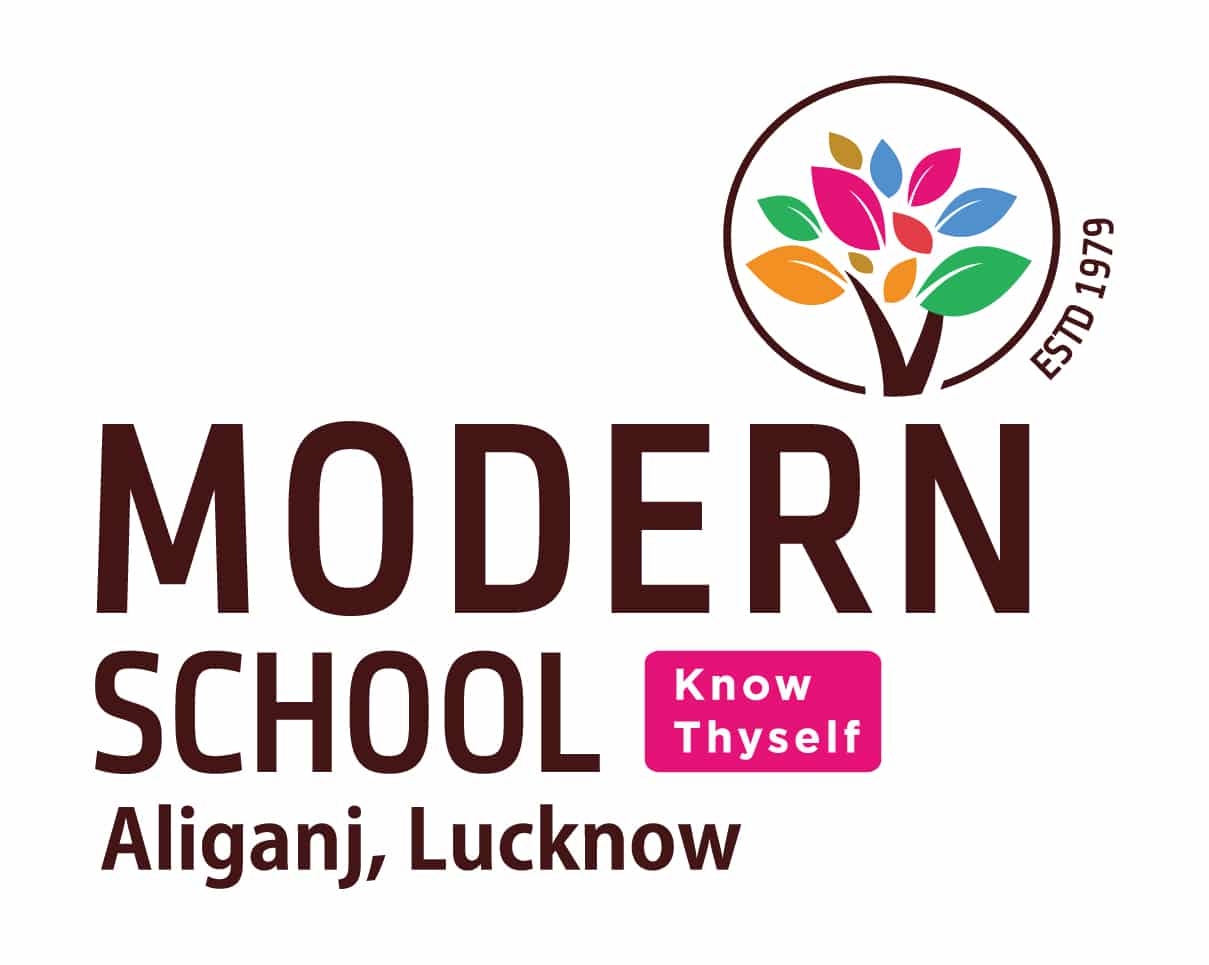Making your child a ‘Fully Functioning Person’
The Modern School not only aims at the academic development of the child but also lays emphasis on the holistic development. Our aim is to make children competent and mature enough so that they not only do well in exams but also come out with flying colours in the daily tests of life as sensitive, tolerant, tough, open-minded and good human beings.
This philosophy of Carl Rogers is followed in the school and the management and teachers try to inculcate the same in themselves as well as the children.
A fully functioning person has three virtues:
- Congruency
- Unconditional regard and
- Empathy
Congruency basically means being one’s ‘Real Self ‘. What we are inherently, without an artificial veneer.
Due to the pressures of life, as a defense and escape one often imagines an ‘Ideal self ‘, something that is unreal and artificial. The real person and his identity are lost in this process. We try to provide our kids wit a facilitative and low pressure platform where they can develop congruency between what they think and speak.
Unconditional regard is acceptance of other person as he or she is, without any prejudices, pre conceptions or conditions and keeping an unbiased and non judgmental attitude towards others. When a child knows that his point of view will be heard and understood with an open mind without judging and he has freedom of thought and expression, he will exhibit complete congruency and live with his true self.
Empathy means that one is able to put himself in the place of the other and understand his point of view as if they were his own.
Teachers in our school practice the virtues of empathy and unconditional regard towards students. In this way students get to grow and learn in a nurturing environment where they have the freedom to make mistakes, experiment with and try new ideas and have no worries of being constantly judged or scrutinized; which makes the journey of learning enjoyable and welcome. All teachers are trained to develop congruency, unconditional regards and empathy.Students are in turn also encouraged to follow in their teachers footsteps and exhibit the virtues of unconditional regard empathy and congruency.The above three combine to create the basis of child-centered education.
Carl Rogers (January 8, 1902 – February 4, 1987) was an influential American psychologist and among the founders of the Humanistic approach to psychology. The Person-centered approach, his own unique approach to understanding personality and human relationships, found wide application in various domains especially education (Student-centered learning), organizations, and other group settings. Towards the end of his life Carl Rogers was nominated for the Nobel Peace Prize for his work. In an empirical study by Haggbloom et al. (2002) using six criteria such as citations and recognition, Rogers was found to be the sixth most eminent psychologist of the 20th Century.

Died: February 4, 1987 (aged 85), San Diego, California, U.S.
Nationality: American
Fields: Psychology
Institutions: Ohio State University, University of Chicago, University of Wisconsin–Madison, Western Behavioral Sciences Institute, Centre for Studies of the Person
Alma mater: University of Wisconsin–Madison, Teachers College, Columbia University
Known for The Person-centred approach (e.g., Student-centred learning, Rogerian argument)
Influences: Otto Rank, Kurt Goldstein
Notable awards: Award for Distinguished Scientific Contributions to Psychology (1956, APA); Award for Distinguished Contributions to Applied Psychology as a Professional Practice (1972, APA); 1964 Humanist of the Year (American Humanist Association)


Leave a Reply
You must be logged in to post a comment.